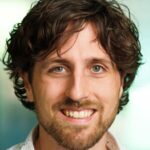
The Power of One: Towards the Representation of Unheard and Unseen Individuals in the Hospital, Workplace and Neighbourhood
“We want to see the unseen and hear the unheard –
people currently not included in abstract categories, datasets, or algorithms.”
What is this project about?
Researchers and professionals focus on what they perceive as the average individual, which prevents them from recognizing those who fall outside this scope. These unseen and unheard individuals typically have an intersecting complexity of social problems, or belong to marginalized groups. There is a consistent lack of data about the needs of these individuals. In our team, consisting of a social psychologist, industrial designer, cultural historian, cell biologist, methodologist, data privacy expert, and language researcher, we examine the barriers that prevent individuals from being empowered to make their needs and views known to professionals (including researchers, policymakers, and aid workers). We examine barriers related to collecting data from marginalized groups in the workplace, the difficulty of reaching out to a representative set of patients to be included in medical research, and the challenge of reaching out to neighbourhood residents for who new technological solutions (e.g., a virtual library) will be developed. Through interviews, participatory research and co-creation methods, and by collaboration with societal partners (e.g., The Netherlands Patient Federation, LGBTQI+ interest groups, the Eindhoven Library), we will investigate how those individuals in society who are often not reached can improve their self-reliance, and make themselves heard and seen.

Results of the second UCo year of The Power of One
Please note, the report is currently undergoing some changes and will be back online shortly.
Individuals with intersecting identities or complex situations are often unseen and unheard in society. The Power of One focuses on these individuals who are often not reached by professionals, and whose needs are often not assessed. In our team, consisting of a social psychologist, sociologist, industrial designer, cultural historian, cell biologist, methodologist, data privacy expert, and language researcher, we have identified barriers related to data collection from marginalized groups in workplace and hospital settings by interviewing professionals (Phase I) and patients and employee (Phase II). We have identified multi-facetted barriers that prevent individuals to make their needs and views known, namely practical, personal, relational, socio-cultural, and assumption-driven barriers. In addition, we have been exploring a new narrative research tool developed by Renee Noortman to investigate barriers related to patient inclusion. In the report, that you can download via the button, we share our findings of Phase II.
Results of the first UCo year of The Power of One
“Many people fall through the cracks in research, outreach and advocacy efforts because they belong to marginalized groups or because they suffer from complex personal and social problems. In this project, we examined how the needs of unheard and unseen individuals in the contexts of the hospital, the workplace and the neighborhood are identified, and to what extent the current strategies succeed in reaching that goal.”
Inclusion in the Workspace – Power of One Report
Workplace inclusion requires active engagement with the unseen and unheard.
“There’s no such thing as an average employee.”
Find the report on this sub topic here.
Inclusion in the Neighbourhood – Power of One Report
To be a better listener to the individual, rather than to work plan-based.
“How do you maintain the human contact in a world where so extremely much is automated and poured into algorithms”
Find the report on this sub-topic here.
The Power of One Team
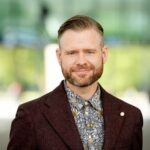
Dr. Daniel Lakens
Human-Technology Interaction group, Eindhoven University of Technology
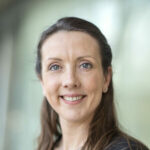
Prof. Dr. Jojanneke van der Toorn
Department of Social, Health and Organizational Psychology, Utrecht University
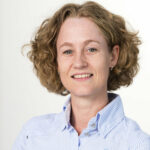
Dr. Marianne Boes
Pediatric Immunology Group at Center for Translational Immunology (CTI),
UMCU
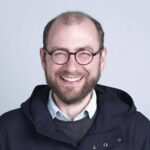
Dr. Mathias Funk
Future Everyday group, Industrial Design, Eindhoven University of Technology
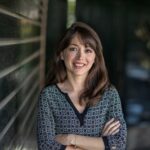
Dr. Özge Bilgili
Social Sciences, department of interdiscplinary social sciences, Utrecht University
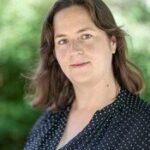
Dr. Merel van Goch
Liberal Arts and Sciences, Institute for Cultural Inquiry, Utrecht University
Dr. Cristiana Teixeira Santos
Law, Economics and Governance, Utrecht University School of Law
Anne Schietecat MSc
Eindhoven University of Technology

Dr. Lieke Stelling
English Language and Culture, Institute for Cultural Inquiry, Utrecht University

Dr. Monique Simons
Department of Social Sciences, Consumption and Healthy Lifestyles Group, Wageningen University
UCo Projects Feed
- Is there life after CUCo? An interview with FAIR Battery
 Is there life after CUCo? Caspar sits down with two project members of the FAIR Battery team. …Read More
Is there life after CUCo? Caspar sits down with two project members of the FAIR Battery team. …Read More - From Spark to UCo: the ‘Clean future: Wellbeing in “dirty work”’ project
 At the kick-off of the Dirty Work, Clean Future team. Caspar got the opportunity to ask a few questions to them in regards to their transition from Spark to UCo. …Read More
At the kick-off of the Dirty Work, Clean Future team. Caspar got the opportunity to ask a few questions to them in regards to their transition from Spark to UCo. …Read More - All in the Same Boat aims to inspire a more integrative vision on water security – through excursion
 The All in the Boat team takes you along on their fieldtrip taking them all over the Netherlands through a short video recap. …Read More
The All in the Boat team takes you along on their fieldtrip taking them all over the Netherlands through a short video recap. …Read More
Get in touch
If you want to know more about this project or come into contact with the researchers, you can e-mail Dr Daniel Lakens.
Contact info
d.lakens [at] tue.nl


